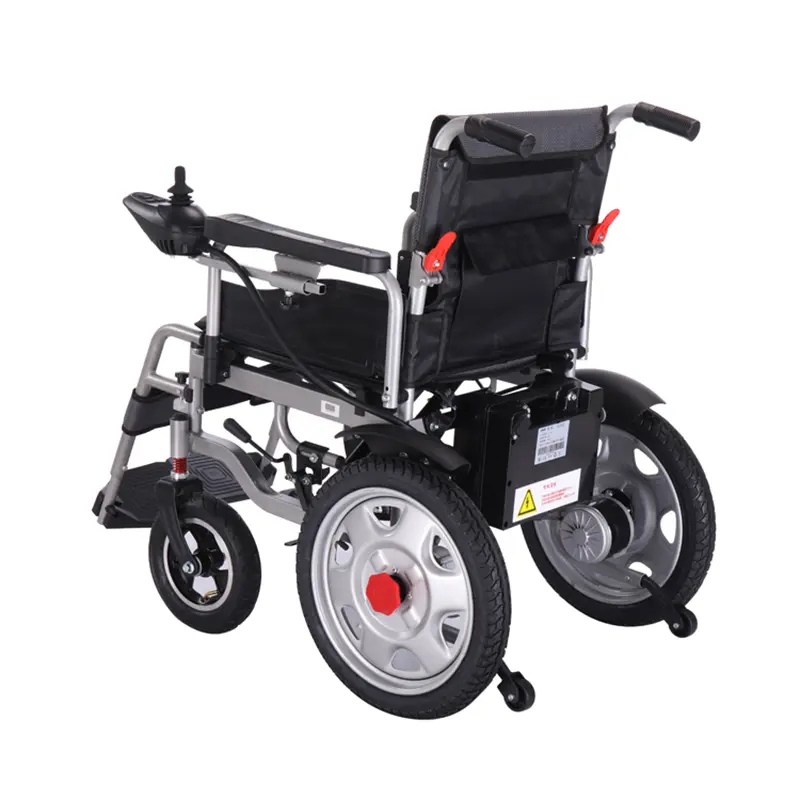What international certifications do electric wheelchairs need to consider?
In the global market environment, electric wheelchairs are important rehabilitation assistive devices, and their international certification is not limited to the EU CE certification and the US FDA certification. In addition to these two well-known certifications, electric wheelchairs need to consider other important international certification standards when entering different countries or regions to ensure product safety, performance and compliance. The following are several major international certifications:
1. ISO 7176 series of standards
The ISO 7176 series of standards is a series of test methods and performance requirements standards for wheelchairs and electric scooters developed by the International Organization for Standardization (ISO). These standards specify in detail the test methods for wheelchair size, weight, basic maneuvering space, maximum speed, acceleration and deceleration, as well as the requirements and test methods for the electromagnetic compatibility of electric wheelchairs and electric scooters and their chargers. Manufacturers need to ensure that their products meet the relevant requirements of the ISO 7176 series of standards to prove that the quality and performance of their products meet international standards, thereby improving the market competitiveness of their products and the trust of consumers.
2. EN 12183 and EN 12184 standards
EN 12183 specifies general requirements and test methods for manual wheelchairs with a weight of less than 100 kg, while EN 12184 specifies general requirements and test methods for electrically or battery-powered wheelchairs and electric scooters and their chargers. Both standards are European standards. Although they are mainly aimed at the European market, they also have high reference value worldwide. Electric wheelchair manufacturers need to fully consider the requirements of these two standards during the design and production process to ensure product access to the European market and provide a basis for certification in other markets.
3. ISO 13485 certification
ISO 13485 is an international standard specifically for the quality management system of medical devices, which is applicable to the entire process of design, development, production, installation and service of medical devices. As a type of medical device, electric wheelchair manufacturers need to establish and maintain a quality management system that meets the requirements of ISO 13485 to ensure product quality and safety. Passing ISO 13485 certification not only helps to improve the management level and product quality of enterprises, but also enhances consumers’ confidence in products and provides strong support for products to enter the international market.
IV. UKCA Certification
UKCA (UK Conformity Assessment) certification is a new certification mark implemented for products sold in the UK market after Brexit. For medical devices such as electric wheelchairs, if they are to be sold in the UK market, in addition to meeting the requirements of the UK medical device regulations, they must also obtain UKCA certification. The process and requirements of UKCA certification are similar to those of the EU CE certification, but they also have their own unique features. Manufacturers need to conduct corresponding tests and evaluations according to the specific regulations and standards of the UK to ensure that the products meet the entry conditions of the UK market.
V. Canadian MDEL Declaration
In Canada, electric wheelchairs, as medical devices, must pass the Medical Device Registration and Licensing (MDEL) declaration procedure of Health Canada. Manufacturers need to prepare detailed product technical documents and declaration materials in accordance with the requirements of Canadian medical device regulations, including product descriptions, performance test reports, risk management reports, etc., and submit them to Health Canada for review. Electric wheelchairs can only be legally sold in the Canadian market after passing MDEL declaration and obtaining registration
VI. China NMPA Certification
For electric wheelchairs sold in the Chinese market, manufacturers must obtain a medical device registration certificate from the China National Medical Products Administration (NMPA). NMPA certification requires manufacturers to conduct strict quality control and performance testing of products in accordance with China’s medical device regulations and standards, and submit complete registration application materials. Electric wheelchairs can only be sold and used in the Chinese market after passing NMPA certification
VII. Other regional certifications
In addition to the above certifications, electric wheelchairs must also consider local certification requirements when entering other regional markets. For example, in Australia and New Zealand, electric wheelchairs must comply with the relevant requirements of Australian standards (AS/NZS) and obtain corresponding certifications; in Southeast Asian countries such as Malaysia and Singapore, electric wheelchairs also need to meet local medical device regulations and standards and pass the corresponding certification procedures
Conclusion
International certification of electric wheelchairs is a complex and important process involving multiple standards and regulations. In addition to the EU CE certification and the US FDA certification, manufacturers also need to consider other certification requirements such as the ISO 7176 series of standards, EN 12183 and EN 12184 standards, ISO 13485 certification, UKCA certification, Canadian MDEL declaration, and China NMPA certification. These certifications not only help ensure the safety and performance of electric wheelchairs, but also improve the market competitiveness of products and consumer trust, providing strong guarantees for the promotion and sales of electric wheelchairs in the global market. Manufacturers should plan certification strategies reasonably according to the specific requirements of the target market to ensure that products can enter the international market smoothly and meet the needs of different consumers.
Post time: Jan-08-2025


